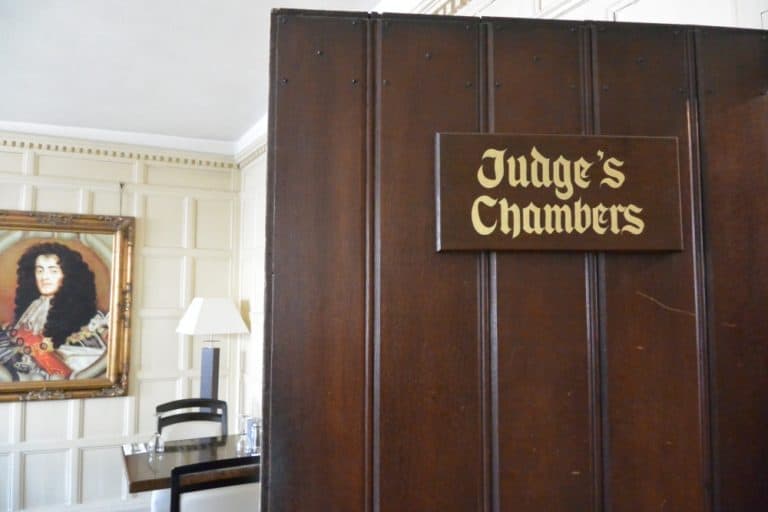
[ May, 2015 ] The restaurant we entered to have a rest after walking around in Dorchester, in the south of England, was old-looking and quaint.
We thought there must be some story behind, so we asked the waitress.
She brought an article in a local magazine to us: In the late 17th century, when the Catholic James II became King, many Protestants were not happy and rebelled.
This was called the Monmouth Rebellion and happened in 1685.
The rebellion ended up a failure and about 1,400 rebels were put on trial.
As a result, more than 300 people were sentenced to death and about 800 people were sent to the West Indies as slaves.
The responsible judge was George Jeffreys.
The trials were called the “Bloody Assizes” and Dorchester was one of the places they had the assize courts.
The judge, Jeffreys, stayed in this house during the trial.
According to the article, he was a bellicose, egotistical person.
There is a story that, while he was in Dorchester, he inveigled a young woman to his bed, saying he would spare her brother, but the next morning she found her brother hung.
Jeffreys himself was a Protestant, so historians think that to show his loyalty to the King, he was brutal to the rebels.
Another theory is that because he had a bad kidney disease, he drank a lot of alcohol to numb the pain, so he could be drunk all the time.
In the end, when James II lost his position and ran away, Jeffreys had to run too, and was arrested.
He died in prison.
The restaurant interior was very nice, but unfortunately, this was one of those Italian chain restaurants, which we see everywhere in England.



